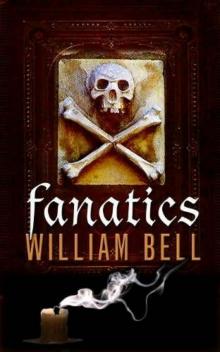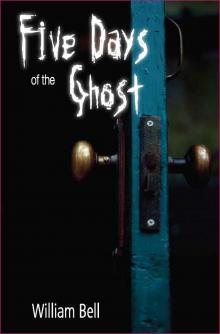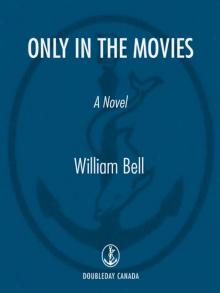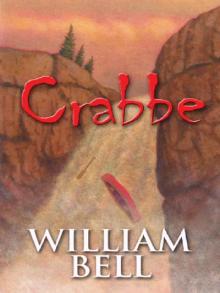- Home
- William Bell
Speak to the Earth Page 2
Speak to the Earth Read online
Page 2
She was in his class, and sat three rows over and two ahead. When she raised her hand, her shirt would stretch tightly across her breasts. Her thick red hair, usually worn in a French braid, swayed softly across her back when she moved her head, or fell forward when she bent over her work.
“You stare at her butt much harder and you’ll burn a hole through her jeans,” Elias had once said as they lined up in the cafeteria for french fries.
“Shut up, Elias. I wasn’t staring.”
“As if. Not that I blame you. She’s got one of the nicest rear ends in this pitiful excuse for a school.”
“She’s not just a body, you know.”
“Yeah, sure.”
Elias had, as he so often did, struck Bryan in a sensitive spot. When his hormones wailed at him he felt guilty thinking about Ellen that way. He knew he should be drawn to her personality, her mind, her accomplishments — she was an A-student and a star athlete — but how could he be attracted to her character when she was a stranger? He knew more about her green eyes, the curve of her brows and the spray of freckles across her nose than he did about her nature.
That day, after lunch, he confided his guilt to Elias, whose response was typical.
“Relax, Bry, you’re normal. Besides, let’s be honest. How many times does a guy look at a passing skirt and say, ‘Hey! Nice personality!’ or ‘Check out the mind on that one!’ ”
“Thanks a lot, Elias. You’re a big help.”
Bryan envied his best friend, and sometimes he felt guilty about that, too. Elias could talk the talk, make the girls laugh, ask them out on dates. With his dark skin, jet-black hair and wide shoulders, he was a natural. He could make up funny songs and sing them under his breath in class, setting up ripples of laughter that circled around him and splashed across the room.
I, Bryan thought, am the opposite. Not short but not tall. Not ugly but not cute either — the stiff wavy ginger hair and pug nose I inherited from my dad guarantee that.
On the few occasions when he had tried to converse with a female of his own age, he’d rehearsed what he was going to say. Inside his head the words sounded pretty good. But when they came out of his mouth — garble. He felt like the only guy in the world who could trip over his own tongue.
The day of the disastrous test, Elias and Bryan were splashing across the school yard to board the school bus that took them home to Nootka Harbour, nine miles down the peninsula. The rain had let up, and the kids on the bus were even more boisterous than usual. As the two boys made their way back to the back of the bus, Elias stopped Bryan.
“Look,” he said above the confusion of voices around them, pointing to an empty seat beside Ellen.
“No way,” Bryan said.
“Okay, if you’re too chicken.”
As they passed Ellen Bryan found himself shoved into the seat beside her, his escape blocked by Elias’s broad back as he began talking to a tall gawky girl named Shirley. Bryan rose and shoved Elias, who stood as immovable as a Douglas fir. At that moment the bus lurched forward with an audible grinding of gears, knocking Bryan onto his rear again. He stared at the metal back of the seat in front of him. He gulped, aware that his heart had sped up alarmingly and that a hot flush crept up his neck and into his face.
“How did you do on the big test?”
“Uh, are you talking to me?”
Ellen smiled and tossed back her hair. “See anybody else in this seat?”
Bryan forced himself to face her. She was wearing tight blue jeans and an oversized red leather vest over a white T-shirt. He gulped again.
“Oh, uh, yeah, I guess you’re right.” What a smooth talker you are, Bryan, he thought to himself. By now she probably thinks you’re retarded.
“So?”
“Uh … so …?”
“The test. Do okay?”
“Oh, yeah. I mean, no. Not really. I’m pretty sure I, you know, failed it.” He found himself scratching his ear and quickly pulled his hand away. “How about you?”
“I did okay, I think. I studied a lot. I like school.”
“Yeah, me too.”
“No, you don’t You never take any books home and you flunked the last project.”
Thanks to W-cubed, everyone in class had been treated to the spectacle of Bryan slinking to her desk and receiving his essay. Richmond had handled it as if it were a dead fish.
“Well, that’s true. But I’m going to work hard now. I really am. I learned my lesson.”
Ellen laughed. “Yeah, sure,” she said. “I’m Ellen Thomson, by the way.”
“I know. Hi. I’m Bryan Troupe.”
“I know. I sort of know your mother.”
“My mom? From where, the supermarket?” Bryan hoped not. Iris worked at the grocery store as a cashier. Ellen’s parents were well off — her father was some kind of supervisor in MFI and her mother was a lawyer.
“No, I saw her at the school meeting a while ago. She made a pretty passionate speech.”
“Really?” Bryan said, groaning inwardly. Bracing himself to make a quick exit, he looked to the aisle, but Elias was still there, his torso swaying with the movement of the bus.
“I was impressed,” Ellen added.
Bryan expected but did not find a note of sarcasm in her voice. Forget this girl, he thought, suddenly angry at his mother, and not for the first time. A few months before, a small group of parents, led by the Thomsons, had tried to get a book banned from the school library because it was “sacrilegious.” Something about witches or ghosts. Iris had gone to the meeting — probably in her grungy old pink track suit, Bryan thought.
“My parents made me go,” Ellen told him. “One of the parents stood up and said the book didn’t belong in a decent Christian community, especially a school, where it could corrupt young minds. Your mom told the group she was a Christian, too, and if their idea of Christianity was to ban harmless books just because their narrow little minds were offended, then they were way out of line. That’s not democracy, she said.”
“Mom can get pretty wound up about that stuff,” Bryan said lamely. “Sometimes she gets out of line herself.”
“Well, maybe.”
Bryan sweated and racked his brains for a clever way to change the subject. He gave up. Ellen looked out the window. Well, that’s it, Bryan, he thought, you blew your chance. Not that you ever really had one.
“Excuse me,” Ellen said as the bus pulled up at the end of her lane. The big house she lived in was barely visible through the spruce trees that lined the road.
“Oh, uh, sorry.” Bryan was relieved that she was leaving. The pressure was killing him. He stood in the aisle to let her pass.
“Anyway,” she said, gathering up her books, “if you’re serious about what you said, maybe we could study together some time.” And with that she went down the aisle and out the door.
Bryan stood there with his mouth open, wondering if his ears were working properly, until the bus ground forward again.
Elias slid in beside him. “So, how’d it go?”
“It didn’t,” Bryan answered, still not believing his ears.
“Hey, Bry, you got to get moving, man. I can’t do everything for you.”
TWO
Bryan was setting the kitchen table for dinner when his mother and uncle came in, laden with bags of groceries.
“Hey, Bry,” Jimmy called out as he put down his bags.
“Hey, Jimmy. What’s for supper, Mom? I’m starved.”
“Dead rats and rotten salmon roe,” Jimmy cut in, lighting up a cigarette with a big chrome-plated Zippo lighter.
“The guest rooms need to be made up, dear,” Iris told Bryan. “We got some customers coming on the weekend.”
It must be March, Bryan mused. The whale-watchers are back in town.
Soon after they moved to Nootka Harbour, Bryan’s mother had put some of Norm’s life insurance money together with the few dollars she had salvaged by selling the business in Drumheller and bought a bu
ngalow on the rocky shore of Osprey Cove, on the west side of town. Her job at the grocery store didn’t pay much and there didn’t seem to be an abundance of career opportunities in Nootka Harbour for a grade ten dropout, so she decided to dip once again into what she still thought of as Norm’s kitty and start up a business. That was when Bryan’s home became Norm’s Bed ’n Breakfast.
Iris Troupe was a slender energetic woman with dark intelligent eyes and a razor wit. Most of the time she gave minimal attention to her appearance beyond cleanliness and tidiness, having formed the opinion long ago that most men were afraid of smart, strong-willed women, and having vowed that she’d be damned if she would deck out her body and be placid. No one in range of her voice was ever in doubt about what Iris thought about an issue. Norm had admired her mind and her sense of humour — he had once told her that he found brainy women sexy — but guys like Norm, Iris knew, didn’t come along too often, and rather than wait around for one, she had a life to live and a son to raise.
Both she and Bryan were grateful on more than one occasion that she did not have to raise Bryan alone: her brother Jimmy was what Iris called a godsend. When the bungalow became a B&B, it was Jimmy who had done the work, interpreting Iris’s freehand plans and drawings. Bryan had helped — which meant standing around, holding things, fetching tools and getting in Jimmy’s way as he sawed and hammered spruce studs or put up drywall, whistling country-western laments and smoking unfiltered cigarettes.
In his late thirties, Bryan’s uncle was a small dark quick-tempered man with a body hardened by a lifetime of rugged work. In a world that still valued larger men in both the romantic and economic spheres, Jimmy Lormer compensated for his size by strength and mental toughness — an attitude that had pushed him into more than a few fights in his youth. Having left school long before he was qualified for any kind of diploma, he was aware that all he had to offer an employer was honesty and a day’s work.
About a year ago Jimmy had moved in with them. He had been laid off by MFI and lost his house when he got too far behind in his mortgage. He had stained the siding on the bungalow, painted every room inside and found things to fix. Jimmy could not sit still. Bryan thought he was a workaholic until one night, when Jimmy was out at the hotel “blowing the suds off a few,” Iris explained that he was too proud to sit around and live off somebody else.
“We’re not somebody else. We’re his relatives,” Bryan had protested. “And he isn’t living off us. He doesn’t have a job right now.”
“That’s how he feels, though,” Iris had answered. “He can’t help it. He won’t even let me lend him money. If he isn’t working, he feels useless.”
After a dinner of sausages and beans, and after Bryan had finished his chores, he sneaked into the kitchen, hoping Jimmy and his mother weren’t within earshot. The nine-o’clock news was on TV, and Bryan could hear them in the family room arguing good-naturedly about a report on the B.C. government granting tree farm licences to multinational corporations. Bryan picked up the phone, held his breath, punched three numbers and paused.
He put the phone down, exhaling with an audible whoosh. Maybe a glass of milk first. No, he had to grab the chance while there was no one else in the kitchen. The last thing he wanted was an audience. Once again he ran over the dialogue he had composed in his mind. Then, remembering to breathe normally, he pressed the buttons that made up Ellen’s number and clamped his eyes shut.
“Hello?”
“Oh, uh, hi. Um, I was just wondering if you were, you know, serious on the bus today? About studying together?”
“Who is this?”
“Oh, damn! I mean, hello, Mrs Thomson. Is Ellen there?”
“Who’s calling, please?”
Remembering just in time that Iris had given the Thomsons a verbal beating at the parents’ meeting, Bryan said, “It’s a friend from school.”
“One moment, please.”
When Ellen came on the line, Bryan rushed ahead. “Hi, it’s Bryan. I —”
“Oh, hi. How are you?”
“Fine. Um, I was wondering —”
“So, did you think about my suggestion?”
“Your—”
“You know. About studying together?”
Wondering how much studying anyone could get done with someone who wouldn’t let him finish a sentence, Bryan tried again. “Yeah, that’s why I —”
“How about tomorrow after school?”
“Sure. Um—”
“Great. See you then. Gotta go.”
Bryan returned to his room and looked at himself in the mirror. “You smooth dude,” he said to his image. Then he laughed.
THREE
Like a gladiator of ancient times or a medieval knight errant Bryan Troupe prepared himself for battle. His armaments: soaps, creams and lotions; floss, brushes, swabs and his uncle’s safety razor. The field: the tiny bathroom of the Troupe bungalow, pulsing with rock music from a portable radio. His foe: his body, which seemed anxious to betray him at every turn. If his vigil was not constant, white flakes might break loose from his scalp and snow his hair or speckle his shoulders; a booger might peek maliciously from a nostril; malodorous liquid would seep from his armpits; dirt would collect secretly under his fingernails and between his toes. Each morning before school Bryan conducted a desperate rearguard campaign against the temple of his own flesh. Never did he feel completely successful.
But this evening he was going to Ellen Thomson’s for the first time and he planned to flog his enemy into total submission. In the shower, he turned slowly under a jet of scalding water. With a shampoo-conditioner that smelled like apples and peaches and guaranteed an end to dandruff, he washed his hair three times, then shut off the water. He soaped up a rough washcloth and, beginning at his hairline, vigorously punished his skin, pausing to assault his ears, advancing downwards to chafe his armpits, attack his crotch, buttocks, legs, and grind loose skin from the depressions in his feet and between his toes. Under the shower again, the foam slid off his body and swirled down the drain. Bryan repeated the process.
By the time he pulled back the shower curtain, he was as pink, overheated and squeaky-clean as he had ever been in his life. The steam in the bathroom was so thick he could barely see. With his damp palm he squeegeed a small circle on the mirror and examined his upper lip. Today was the day he would remove from there the few downy blond hairs that made him look like a kid. Besides, if he ever was lucky enough to kiss Ellen, he didn’t want to tickle her.
Using Jimmy’s shaving brush and mug, Bryan worked up enough lather to shave a camel and applied the thick, creamy soap to his skin. When he was finished, his mouth had disappeared, his nostrils were clogged, and he couldn’t breathe. He sneezed, blowing foam all over the mirror, his chest and the vanity top. He took a deep breath and dragged the razor over his upper lip. In two modest strokes, he was done.
And there was a gash under his nostril leaking bright arterial blood.
“Damn!” He ripped a piece of toilet paper from the roll and stuck it to the offending wound. Before the mirror again, Bryan inspected his nostrils and ear holes for foreign particles. Finding none, he plugged in the hair dryer and attempted to bring order to his thick ginger hair. By the time he had given up in disgust, he realized that he was sweating heavily. The temperature in the steamy bathroom must have touched forty degrees. Fifteen minutes later he stepped out of the shower again, chilled to the bone.
Bryan dabbed another bit of toilet paper on his wound, then extracted a metre of dental floss from the plastic container. Pulling back his lips like a crazed ape, he began to floss, jamming the minty thread between his teeth, working it back and forth and yanking it out again, occasionally flicking bits of food onto the mirror. He then brushed his teeth. Twice. He swirled mouthwash around, gargled and spat into the sink.
The last stage of the battle had been reached. Bryan pulled the cap off a bottle of deodorant and, raising his arm like a victorious warrior, pumped a spray of fragrant
liquid into his hairy armpit. For good measure, he pumped again. The bottle emitted a light farting noise. It was empty.
“Damn!” said the knight for the second time. He sneaked into his mother’s bedroom and searched among the few bottles and jars on her dresser until he found an anti-perspirant stick with a wildflower depicted on the front. He applied a thick layer to his unprotected armpit, added some to the sprayed side, added more to the first side. He went into his room, flapping his arms to dry the sticky varnish. Then he dressed, taking twenty minutes to create the impression that he had tossed on his clothing on the way out the door. He took a long, deep breath and wished himself luck.
As Bryan left the house, Jimmy yelled, “Lookin’ good, nephew. She’ll love ya. Especially the toilet paper on your lip!”
FOUR
When Bryan bounded into the kitchen for breakfast one Saturday morning a week or so later, Jimmy was dishing out three portions of his famous Eggs James — a concoction of scrambled eggs, onions and tomatoes that looked like a modern painting on the plate. Iris was pouring coffee.
“Mom,” Bryan said as he took his seat, “could you do me a small tiny little favour?”
Iris gathered her hair together at the nape of her neck and clipped a plastic barrette around it. “Sure,” she said, throwing her arms out wide. “But first you have to tell me how you like my new T-shirt.”
On the front of her bright green shirt “ORCA SOUND RAINFOREST” was embossed in darker green on a white conifer.
“It’s nice, Mom, except that the colours are a bit mixed up. Most of the trees around here are green. What’s it all about?”
“A few of us around town have formed a committee to try and convince the provincial government to declare Orca Sound a natural preserve. You know, so we can protect the old-growth rainforest. Some of the animals and plants here are unique in the world. Did you know that?”

 Stones
Stones Fanatics
Fanatics Alma
Alma Speak to the Earth
Speak to the Earth Five Days of the Ghost
Five Days of the Ghost Only in the Movies
Only in the Movies Julian
Julian Just Some Stuff I Wrote
Just Some Stuff I Wrote Zack
Zack Forbidden City
Forbidden City Death Wind
Death Wind No Signature
No Signature Crabbe
Crabbe